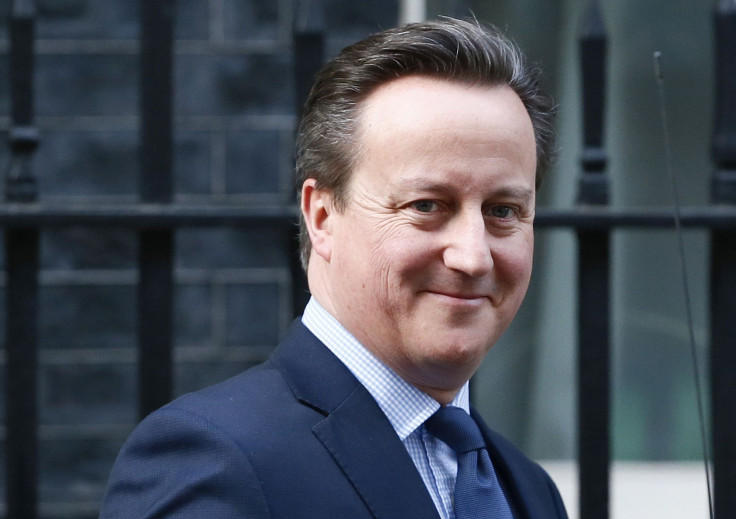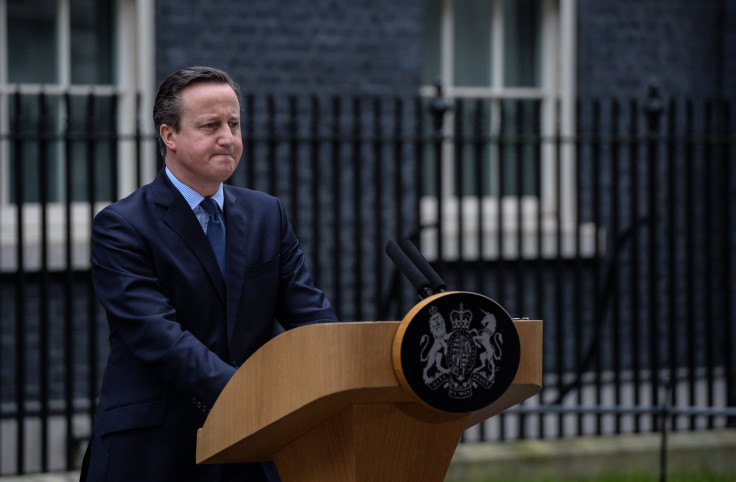David Cameron To Address Parliament Over EU Deal As Renewed Brexit Fears Deepen Pound Sell-Off

UPDATED 11:10 a.m. EST — British Prime Minister David Cameron made his case Monday for reforming the country's association with the European Union, arguing against those prospects by citing trade and migrants as two reasons why the United Kingdom should stay in the 19-member continental bloc. A deal was reached Friday to avoid a "Brexit" and a referendum on it has been set for June 23.
"For those members who care about signing new trade deals outside the EU, we would be looking at years and years of delay," Cameron told the U.K. Parliament Monday, according to the BBC.
BREAKING: #Brexit is a leap in dark, says David Cameron as he argues Britain must stay in EU https://t.co/5Qq7tgeA9J https://t.co/PCvfRUNDyX
— Bloomberg Business (@business) February 22, 2016
The consequences of a "Brexit" could also include refugees and economic migrants being granted access to the country's benefits system reserved for its citizens, Cameron warned. "All along we have said people should not be able to come here and get access to our benefit system straight away," he said. "No more something for nothing, and that is what we have achieved."
.@David_Cameron compares EU referendum to divorce proceedings https://t.co/mlKrUpTTbV
— Sky News (@SkyNews) February 22, 2016
The deal Cameron and the U.K. reached Friday with the EU would be "legally binding in international law," he said Monday, hinting to lawmakers that there would not be another chance to renegotiate the deal. "I won't dwell on the irony that some who want to vote to leave apparently want to use a leave vote to remain," Cameron said.
Finally, before allowing the Opposition politicians to speak, Cameron insisted that the deal was in the best interest of Britain and that he was not acting out of political motivations. Boris Johnson, the Mayor of London, came out Sunday against the deal and openly defying Cameron. Some have speculated Johnson did so as he eyed Cameron's office as a potential next step.
.@David_Cameron says that his EU deal gives UK the 'best of both worlds' https://t.co/FfsmQobF4s
— Sky News (@SkyNews) February 22, 2016
"I am not standing for re-election. I have no other agenda than what is best for our country. I'm standing here telling you what I think. My responsibility as prime minister is to speak plainly about what I believe is right for my country and that is what I will do every day for the next four months," Cameron said.
.@David_Cameron says UK will be legally excluded from push for 'ever closer union' https://t.co/voadUCQebX
— Sky News (@SkyNews) February 22, 2016
Original story:
British Prime Minister David Cameron will on Monday address lawmakers and make a case for the U.K. to stay in the European Union after London Mayor Boris Johnson became the latest person to join the campaign urging the country to leave the 28-nation bloc.
Cameron is expected to outline details of last week’s deal with EU leaders, following which a referendum on EU membership will be held June 23. Over the weekend, the British prime minister argued that staying within a “reformed” EU would ensure that the U.K. is “safer, stronger and better off.”
“If Britain were to leave the EU, that may give you a feeling of sovereignty, but the question you have to ask yourself is — Is it real?” Cameron said Sunday, during an interview with the BBC. “Would you have the power to help businesses and to make sure that they aren’t discriminated against in Europe?”
“You have an illusion of sovereignty but you don't have power,” he added.

However, voices opposing the move, which include many within the Cameron’s Conservative Party, have only grown louder in recent weeks. Earlier on Sunday, Johnson, who is also a Conservative lawmaker and is believed to be close to Cameron, wrote, in a 2,000-word column for the Daily Telegraph, that the referendum offered a “once-in-a-lifetime chance to vote for real change in Britain’s relations with Europe.”
“A vote to Remain will be taken in Brussels as a green light for more federalism, and for the erosion of democracy,” Johnson wrote. “David Cameron has done his very best, and he has achieved more than many expected . There is some useful language about stopping ‘ever-closer union’ from applying to the UK, about protecting the euro outs from the euro ins, and about competition and deregulation. … It is good, and right, but it cannot stop the machine; at best it can put a temporary and occasional spoke in the ratchet.”
Meanwhile, as the Brexit campaign gathers steam, the pound sterling had dropped 1.7 percent against the dollar to $1.416 — the biggest fall in at least 11 months — by 4:37 a.m. EST. Volatility versus both the dollar and euro also surged to the highest level since 2011, as a pound sell-off deepened during overnight trade.
“The pound is tumbling after the deal clinched by Prime Minister Cameron at the EU summit failed to alleviate fears about Brexit,” Valentin Marinov, head of Group-of-10 currency strategist at Credit Agricole’s corporate and investment-banking unit in London, told Bloomberg. “The fact that prominent members of the Conservative Party announced they will campaign for Britain to leave the EU likely underscored investors’ concerns that Brexit risks could increase from here despite the deal.”
© Copyright IBTimes 2024. All rights reserved.






















